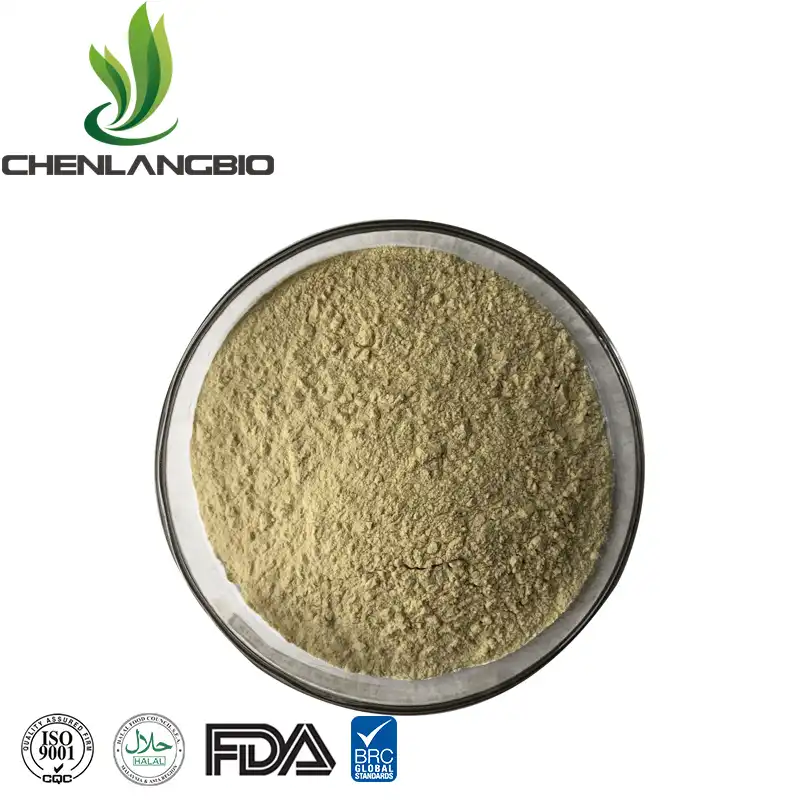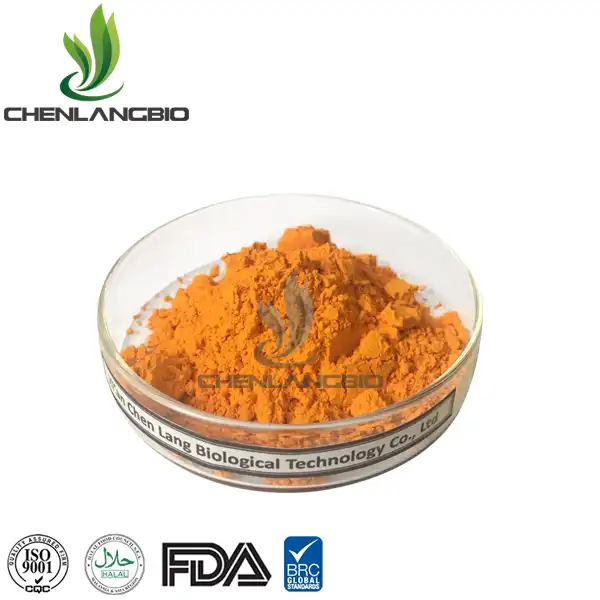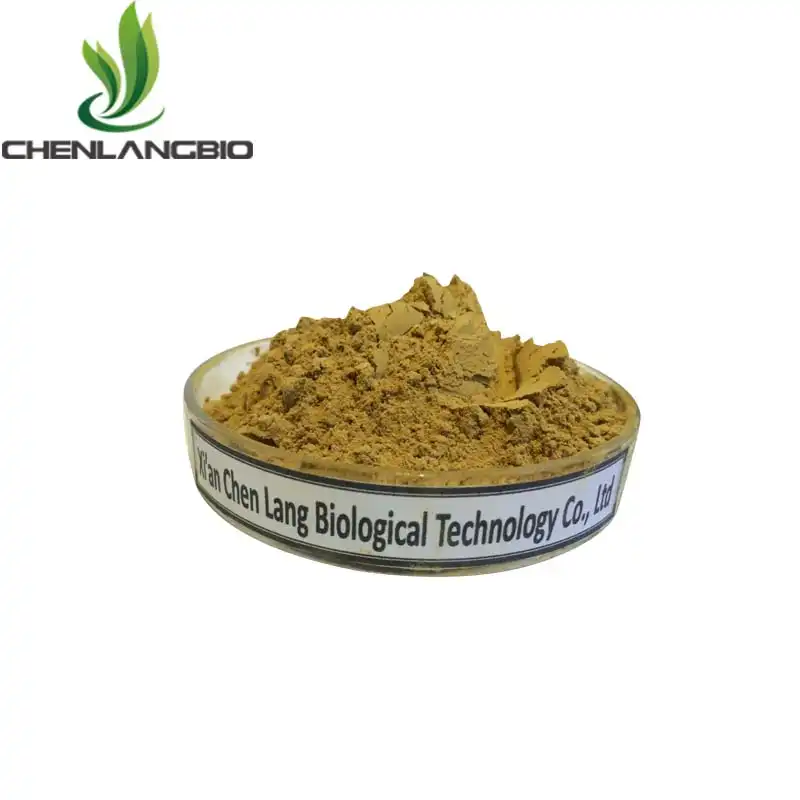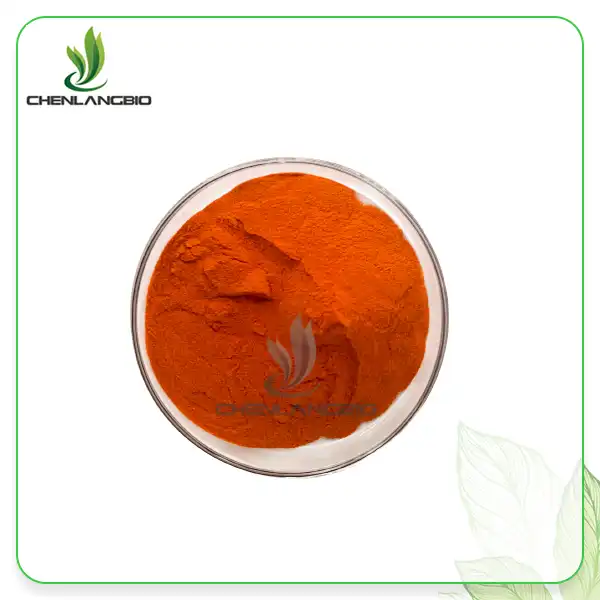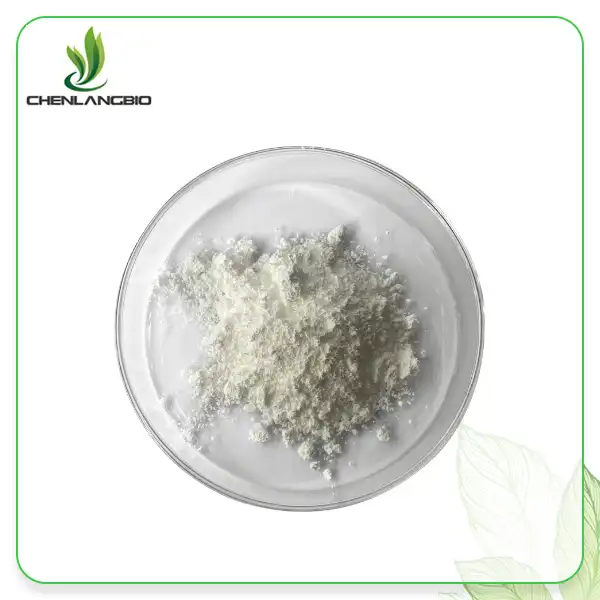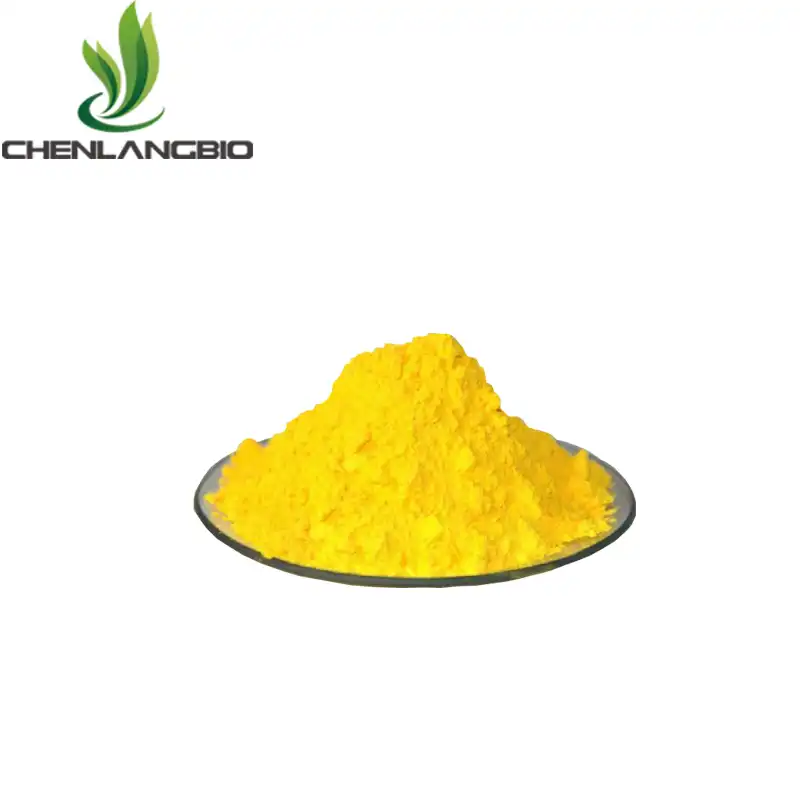What is NMN, and How Does It Function in the Body?
2025-03-25 13:02:10
NMN, or β-Nicotinamide Mononucleotide, is a naturally occurring molecule that serves as a direct precursor to NAD+ (nicotinamide adenine dinucleotide), a critical coenzyme found in every cell of the human body. As we age, NAD+ levels naturally decline, which has been linked to various age-related conditions and overall cellular deterioration. NMN supplementation has gained significant attention in recent years for its potential to boost NAD+ levels, thereby supporting cellular energy metabolism, DNA repair mechanisms, and various anti-aging processes throughout the body.
The Science Behind NMN and NAD+ Production
The Biochemical Structure of β-Nicotinamide Mononucleotide
β-Nicotinamide Mononucleotide (NMN) is a nucleotide derived from ribose and nicotinamide, with a molecular weight of 334.22 and a chemical formula of C11H15N2O8P. This compound exists naturally within the human body, though in very limited quantities. The molecular structure of NMN enables it to function effectively as a precursor to NAD+, a coenzyme essential for numerous cellular processes. The biochemical pathway through which NMN is converted to NAD+ involves the enzyme nicotinamide mononucleotide adenylyltransferase (NMNAT), which catalyzes the final step in NAD+ biosynthesis. This pathway is particularly important because, unlike other NAD+ precursors, β-Nicotinamide Mononucleotide can be transported directly into cells via recently discovered specific transport proteins that increase in expression when cellular NAD+ levels decline. This direct cellular uptake mechanism makes NMN one of the most efficient compounds for boosting NAD+ levels, as it bypasses several metabolic steps required for other precursors like nicotinamide riboside (NR) or nicotinamide.
The NAD+ Biosynthesis Pathway
The biosynthesis of NAD+ can occur through multiple pathways, with the salvage pathway being the most efficient in mammals. Within this pathway, β-Nicotinamide Mononucleotide plays a crucial role as the immediate precursor to NAD+. When ingested as a supplement, NMN enters the bloodstream and is rapidly converted to NAD+ in various tissues throughout the body. This conversion process is regulated by both the availability of NMN and the expression levels of the NMNAT enzymes. Research has shown that supplemental NMN can increase NAD+ levels in multiple organ systems, including the liver, skeletal muscle, and brain tissue. The efficiency of this conversion varies across different tissues, with some showing more pronounced increases in NAD+ following NMN supplementation than others. Furthermore, recent studies have revealed that NMN can also contribute directly to cellular energy production without requiring conversion to NAD+, particularly under conditions of metabolic stress or when NAD+ levels are depleted. This dual mechanism of action—both as an NAD+ precursor and as a direct contributor to cellular energy—makes β-Nicotinamide Mononucleotide a particularly versatile compound for supporting cellular health and function.
Cellular Transport and Bioavailability
The bioavailability of β-Nicotinamide Mononucleotide is a critical factor in its effectiveness as a supplement. Recent scientific discoveries have identified specific transport proteins that facilitate the direct entry of NMN into cells, contrary to earlier beliefs that NMN needed to be converted to other compounds before cellular uptake. These transport proteins increase in number when NAD+ levels drop, creating an efficient feedback mechanism that ensures cells receive NMN when they most need it. The bioavailability of NMN is also influenced by various factors, including its delivery method, dosage, and individual metabolic differences. Studies indicate that oral supplementation of NMN powder can effectively increase blood and tissue levels of NAD+, though the optimal dosage may vary based on individual health status and age. Additionally, the purity of NMN supplements plays a significant role in their bioavailability and effectiveness. High-purity supplements, such as those produced by CHEN LANG BIO with a purity of 99%, ensure that the maximum amount of active β-Nicotinamide Mononucleotide reaches the cells, promoting optimal NAD+ production and cellular function. This high purity is achieved through advanced production techniques, including natural fermentation processes and stringent quality control measures that eliminate additives and contaminants.
Health Benefits of NMN Supplementation
Anti-Aging Effects and Cellular Rejuvenation
β-Nicotinamide Mononucleotide has garnered significant attention for its potential anti-aging effects, primarily through its ability to boost NAD+ levels that naturally decline with age. This decline in NAD+ is associated with various hallmarks of aging, including genomic instability, mitochondrial dysfunction, and cellular senescence. By replenishing NAD+ levels, NMN supplementation may help counteract these age-related changes, potentially slowing the aging process at a cellular level. Research has demonstrated that NMN can activate sirtuins, a family of proteins that regulate cellular health and longevity. Specifically, sirtuins are involved in DNA repair, stress resistance, and metabolic regulation—all processes that become compromised during aging. By enhancing sirtuin activity through increased NAD+ availability, β-Nicotinamide Mononucleotide supplements may help maintain cellular integrity and function as we age. Furthermore, NMN has been shown to improve mitochondrial function, the powerhouses of our cells that become less efficient with age. This improvement in mitochondrial health can lead to increased energy production, reduced oxidative stress, and enhanced cellular resilience. These combined effects contribute to NMN's potential as a comprehensive anti-aging supplement that addresses multiple aspects of the aging process simultaneously, rather than targeting individual symptoms or biomarkers.
Metabolic Health and Energy Production
β-Nicotinamide Mononucleotide plays a crucial role in cellular energy metabolism, making it particularly beneficial for metabolic health. NAD+, which is produced from NMN, serves as a coenzyme in numerous metabolic reactions, including those involved in glycolysis, the citric acid cycle, and oxidative phosphorylation—all essential processes for converting food into cellular energy. Research has shown that NMN supplementation can improve insulin sensitivity and glucose tolerance, potentially benefiting individuals with type 2 diabetes or prediabetes. These metabolic improvements are thought to occur through multiple mechanisms, including enhanced mitochondrial function, increased activation of SIRT1 (a sirtuin protein), and improved insulin signaling pathways. Additionally, NMN has been associated with reduced age-related weight gain, likely due to its effects on metabolism and energy expenditure. By supporting metabolic flexibility—the ability to efficiently switch between using carbohydrates and fats as fuel—NMN may help maintain a healthy body weight and composition as we age. Furthermore, many users report increased energy levels and physical performance following NMN supplementation, which may be attributed to enhanced cellular energy production and improved mitochondrial efficiency. This increased cellular energy can translate into greater physical vitality, reduced fatigue, and improved exercise capacity, making β-Nicotinamide Mononucleotide a potential ally for both athletic performance and everyday energy levels.
Cardiovascular and Neurological Protection
The cardiovascular and neurological benefits of β-Nicotinamide Mononucleotide stem from its ability to support cellular health in the heart, blood vessels, and brain. NMN has been shown to improve endothelial function—the health of the cells lining blood vessels—which is crucial for maintaining healthy blood pressure and preventing atherosclerosis. Studies indicate that NMN supplementation may help prevent high blood pressure by inhibiting and reversing atherosclerosis, restoring vascular elasticity, and expanding blood volume. This occurs primarily through supplementing NAD+ levels, which allows foam cells to gradually restore vascular smooth muscle cells and recover their natural elasticity. Additionally, NMN's anti-inflammatory effects help prevent the formation of blood clots and open blocked collateral circulation, contributing to its blood pressure-lowering effects. In the brain, β-Nicotinamide Mononucleotide easily crosses the blood-brain barrier, allowing it to support neuronal health and function directly. This property makes NMN potentially beneficial for various neurological conditions, including Parkinson's disease, Alzheimer's disease, and age-related cognitive decline. Research has shown that NMN can enhance mitochondrial function in neurons, protect against oxidative stress, and support DNA repair mechanisms—all processes that are essential for maintaining brain health and cognitive function. Furthermore, NMN has demonstrated protective effects on vision, particularly against macular degeneration. The retina and central nervous system are rich in unsaturated fatty acids, making them susceptible to oxidative damage. NMN's ability to prevent retinal oxidation and protect the central nervous system makes it a promising compound for maintaining visual health, especially as we age.
Practical Applications and Usage Guidelines
Optimal Dosage and Timing for NMN Supplementation
Determining the optimal dosage of β-Nicotinamide Mononucleotide requires consideration of various factors, including age, health status, and specific health goals. Clinical studies have examined doses ranging from 100mg to 1200mg per day, with most research focusing on doses between 250mg and 500mg daily for adults. The timing of NMN supplementation may also influence its effectiveness. Some research suggests that taking NMN in the morning may align better with the body's natural circadian rhythms and NAD+ metabolism, potentially optimizing its benefits. However, individual responses can vary, and some people report better results when taking NMN in divided doses throughout the day or with meals to enhance absorption. The duration of supplementation is another important consideration. While some benefits of β-Nicotinamide Mononucleotide may be noticeable within weeks, particularly increased energy and improved sleep quality, other effects related to cellular repair and anti-aging may require consistent supplementation over several months. It's worth noting that NMN supplements from CHEN LANG BIO come with a minimum order quantity (MOQ) of 1Kg, with shipping typically occurring within 2-3 working days after ordering. This efficient supply chain ensures that individuals and practitioners can maintain consistent supplementation schedules without interruption, which is crucial for achieving and maintaining the desired health benefits of NMN.
Quality Considerations for NMN Products
The quality of β-Nicotinamide Mononucleotide supplements varies significantly between manufacturers, making it essential to select products from reputable sources with stringent quality control measures. Key quality indicators include purity, production method, and third-party testing. CHEN LANG BIO produces NMN powder with a purity of 99%, ensuring maximum efficacy and minimizing the presence of impurities or contaminants. This high purity is achieved through 100% natural fermentation processes, avoiding the use of chemical synthesis methods that may introduce unwanted byproducts. Additionally, CHEN LANG BIO's NMN products are non-GMO and contain no additives, making them suitable for individuals with various dietary preferences and sensitivities. The company's quality control center is equipped with advanced analytical instruments, including high-performance liquid chromatography-evaporative light scattering detector (HPLC-ELSD), atomic fluorescence spectrometer (AFS), and ultraviolet-visible spectrophotometer (UV), enabling comprehensive analysis and verification of product composition and purity. Furthermore, CHEN LANG BIO has secured multiple patents for their NMN production processes, reflecting their commitment to innovation and quality. Their market share ranks among the top three in China, indicating widespread recognition and trust in their products. When selecting an NMN supplement, consumers should look for products that provide transparent documentation, including Certificates of Analysis (COA) and third-party test data, which CHEN LANG BIO provides for their products to verify their quality claims.
Complementary Lifestyle Factors for Enhanced Results
While β-Nicotinamide Mononucleotide supplementation can provide significant health benefits, its effects can be enhanced when combined with complementary lifestyle factors. Regular physical exercise has been shown to naturally increase NAD+ levels and improve mitochondrial function, potentially synergizing with the effects of NMN supplementation. Combining moderate-intensity exercise with NMN may therefore provide greater benefits for metabolic health, energy production, and anti-aging effects than either intervention alone. Dietary factors also play an important role in supporting NAD+ metabolism. Certain foods naturally contain small amounts of NMN, including broccoli, avocados, cucumbers, and tomatoes, though the concentrations are relatively low compared to supplemental forms. Additionally, limiting alcohol consumption is advisable when taking NMN supplements, as alcohol metabolism can deplete NAD+ levels and potentially counteract the benefits of supplementation. Adequate sleep is another crucial factor for maximizing the benefits of β-Nicotinamide Mononucleotide. NMN itself can improve sleep quality by helping to regulate the body's circadian rhythm through its effect on NAD+ levels. This improvement in sleep quality creates a positive feedback loop, as better sleep also supports overall cellular health and NAD+ metabolism. Stress management techniques, such as meditation, yoga, or deep breathing exercises, may also complement NMN supplementation by reducing oxidative stress and inflammation—processes that can deplete NAD+ levels and accelerate cellular aging. By integrating these lifestyle factors with high-quality NMN supplementation from providers like CHEN LANG BIO, individuals can create a comprehensive approach to supporting cellular health, energy production, and healthy aging.
Conclusion
β-Nicotinamide Mononucleotide represents a promising avenue for supporting cellular health and combating age-related decline through its role in NAD+ production. As research continues to unfold, NMN's diverse benefits for metabolic health, anti-aging, and organ protection make it a valuable supplement for those seeking to optimize their cellular function and overall wellbeing.
Looking for premium-quality NMN to transform your health and vitality? CHEN LANG BIO stands as your trusted partner with GMP-certified facilities, ISO 9001-2015 certification, and sustainably sourced materials. Our 99% pure NMN powder, produced through 100% natural fermentation, delivers unmatched quality and results. Experience the difference with our patented formulations, backed by comprehensive quality controls and global certifications. Ready to invest in your cellular health? Contact us today at admin@chenlangbio.com and take the first step toward revitalized energy and longevity!
References
1. Yoshino J, Baur JA, Imai SI. NAD+ Intermediates: The Biology and Therapeutic Potential of NMN and NR. Cell Metabolism. 2018;27(3):513-528.
2. Mills KF, Yoshida S, Stein LR, et al. Long-Term Administration of Nicotinamide Mononucleotide Mitigates Age-Associated Physiological Decline in Mice. Cell Metabolism. 2016;24(6):795-806.
3. Rajman L, Chwalek K, Sinclair DA. Therapeutic Potential of NAD-Boosting Molecules: The In Vivo Evidence. Cell Metabolism. 2018;27(3):529-547.
4. Hong W, Mo F, Zhang Z, et al. Nicotinamide Mononucleotide: A Promising Molecule for Therapy of Diverse Diseases by Targeting NAD+ Metabolism. Frontiers in Cell and Developmental Biology. 2020;8:246.
5. Tarantini S, Valcarcel-Ares MN, Yabluchanskiy A, et al. Nicotinamide mononucleotide supplementation reverses vascular aging in mice. Aging Cell. 2019;18(3):e12934.
6. Irie J, Inagaki E, Fujita M, et al. Effect of oral administration of nicotinamide mononucleotide on clinical parameters and nicotinamide metabolite levels in healthy Japanese men. Endocrine Journal. 2020;67(2):153-160.



